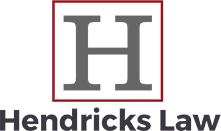What is Employer Compliance?
If you’re an employer with questions about I-9 compliance, we’re here to provide answers. We will help you create compliance policies, prepare for inspections or audits, and conduct business immigration training for your team.
The I-9 Form For Employment Eligibility Verification And Employer Compliance
The Immigration Reform and Control Act of 1986 required employers to verify that all new employees presented valid documentation, verifying their identity and legal authorization to accept employment in the U.S. Every employee who has been hired after that time has to complete an I-9 form at the time of hire. The employer is responsible for ensuring that the forms are completed properly and on time.
A company can find itself liable, if it employs unauthorized workers. Several versions of Form I-9 have been issued since the form was introduced and not all versions are valid. To determine whether you are using the correct version of Form I-9, regularly consult with an employer compliance attorney in Albuquerque, New Mexico to review your I-9 compliance practices.
If an employee cannot read or write in English, a translator can sign the form on behalf of the employee but the form does also require the employee’s signature. In 2004, legislation made it possible to complete the I-9 electronically. Employers must re-verify certain documents before their expiration date and this does not apply to accepted non-expired U.S. Passports, Lawful Permanent Resident Cards, or state driver’s licenses and state IDs. The USCIS website lists the limited requirements for reverification. Always check for reverification and I-9 compliance with your Albuquerque employer compliance attorney.
For U.S. citizens, I-9 forms remain valid unless there is a pause of more than one year in employment. International employees on certain visas must have their I-9 re-verified each time their visa expires. Employers must retain a Form I-9 for all current employees and for three years after the date of hire or one year after employment ends, whichever is later. Employers must show their employees’ I-9 any time an immigration or labor authority requests it.
The Immigration Reform and Control Act introduced the requirement leading to the endorsement of the I-9 form and included anti-discrimination rules. Most U.S. citizens, lawful permanent residents, temporary residents, and refugees who are legally allowed to work in the United States cannot be discriminated against due to national origin or citizenship status. This applies to employers of at least three employees and covers both hiring and termination practices. A New Mexico employer compliance attorney should review these practices for you routinely.
An employer cannot refuse to hire a candidate because his I-9 reveals that he is not a citizen but is a lawful permanent resident or a refugee. For this reason, some employer compliance lawyers in Albuquerque advise companies to avoid requiring the I-9 until the candidate is hired, so as not to risk a lawsuit. A company cannot not insist that an employee provide a passport instead of a driver’s license and a social security card. Another rule states that employers must enforce I-9 compliance in a uniform fashion. They cannot require some employees to complete an I-9 form before being hired but allow others to complete the form after already beginning employment, for example.
Our attorneys can answer your questions about the rapidly changing area of business immigration, and we will make sure you have the resources you need to remain compliant.
Request A Consultation Today
U.S. immigration law can be incredibly complex – and for most people, the best course of action is to work with an immigration attorney who understands the process and federal immigration laws.


